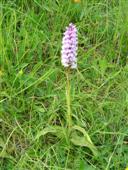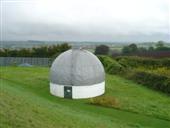Conservation

Portsmouth Water operates within an environmentally sensitive area, with internationally important inter tidal mudflats and saltmarsh along the coast, and the chalk streams of the South Downs which provide a very special wetland habitat and water resource. This provides major challenges to the Company at a time when customer expectations are also rising. The requirements of European legislation provide extra constraints, in addition to climate change, extreme weather events, and the day to operating challenges of supplying water to more than 655,000 people, while minimising our environmental impact.
Biodiversity Action Plan - Policy and Practice
The Company's policy is to conserve and enhance the natural environment of its land and water areas and to preserve historic buildings and equipment, so far as is consistent with the primary duty of providing a sufficient supply of wholesome water at reasonable cost. Where possible the Company explores opportunities to encourage recreational use.
The Company has a long history of good practice in consultation and development in an area with many important wildlife sites and with landscape appreciated by residents and a large number of visitors. When new structures and buildings are required, the Company's policy is to ensure that, by careful design and landscaping, they blend into their surroundings. We continue to give full consideration to the environmental aspects of all our activities throughout our area of supply.
We are committed to ensuring compliance with all environmental legislation and obligations, carefully assessing the impact of our activities, especially construction projects on the environment, to ensure that the impact of such schemes is minimised. In 2013/14 the Company Environmental and Biodiversity Specialist developed a new environmental screening tool to help our engineers and project managers to identify any potential environmental and ecological constraints. The new tools use a Geographical Information System (GIS) to display data on maps displaying protected habitats, species and monuments. The data has been obtained from Natural England, English Heritage, the Environment Agency and County ecological record offices.
Annual Conservation & Recreation Reports
In procuring goods and services, the Company's practices are as follows:-
• The environmental impact of new capital schemes are investigated as appropriate and sensitive sites are either avoided or mitigation measures carried out, subject to independent ecological advice.
• New capital schemes are designed and constructed so as to blend with their existing surroundings as far as is economic and practicable.
• Opportunities for environmental enhancement are taken where it is economic and practicable to do so.
• The potential archaeological impact of new capital schemes is investigated prior to commencement of work and monitored during implementation, subject to independent advice.
• Recycling or re-use of excavated materials is carried whenever economic and practicable.
• All vehicles used have diesel engines with Euro 4 reduced emissions.
• Diesel fuel has low sulphur content, with benefits to exhaust emissions.
• Timber used is from replanted forests.
• 85% of reinstatement material is recycled.
• We ensure that our pipe suppliers have suitable policies for control of pollution, resource management and material selection.
A study into the sustainability of abstraction from the River Itchen was undertaken to establish whether Habitats Directive species were adversely affected by the activities of Portsmouth Water and Southern Water services, the study was concluded in 2007/08.
The outcome for the abstraction licence at Gaters Mill, the point of abstraction for the River Itchen Water Treatment Works, is a reduction in summer monthly abstraction or peak deployable output, and imposition of a minimum residual flow or ‘hands off’ flow condition which restricts abstraction from the river when flow falls to a specified level, together with an annual licence reduction. The implications of the sustainability reductions have been included in the company’s draft water resources plan as submitted to the Secretary of State in March 2008.
Chichester and Langstone Harbours are Special Protection Areas (SPAs) under the Habitats Directive. A study into the sustainability of abstraction from the Company’s West Sussex sources was undertaken to establish whether wading birds were adversely affected by the activities of the water company, the study was concluded in 2007/08.
The outcome of the Habitats Directive for the abstraction licence at Havant and Bedhampton Springs is the application of a minimum residual flow condition to the Hermitage Stream and ‘Hampshire Lavant’ which is likely to reduce the peak drought output of the spring’s source. The peak and annual abstraction licensed quantities remain unaffected.
The outcome of the Habitats Directive for the Fishbourne source is the imposition of an autumnal restriction which limits weekly abstractions but would not affect the peak drought output of the site.
Fishbourne together with a further group of five abstraction sites will have an aggregated licence with an annual abstraction of 15% less than the sum of the individual licence. As there are no further restrictions to the group there will be no impact upon peak deployable outputs.
Whilst the Habitats Directive outcomes have been published for the Chichester and Langstone Harbours the company intends to continue the existing studies of over wintering bird behaviour in the Harbours as part of the ecological studies associated with the Havant Thicket Winter Storage Reservoir.
Staunton Country Park, in conjunction with Portsmouth Water launched a ‘Water is Life’ Trail for visitors as part of the education programme. The Trail continues to attract large number of visitors and is reported to be successful by Staunton Country Park.
The Water Trail can either be guided or self-guided and is designed to help educate children and parents visiting the Park about the importance of water as a resource and encourage them to be more water efficient. The Trail takes the form of a walk within the park searching for water information boards.
The ‘Water Is Life’ education programme provides school children of all ages the opportunity to learn about the world of water by completing practical tasks using resources provided by Portsmouth Water.
The Company provides children at Key Stage 2 and 3 with water ‘information boxes’ containing a number of hands on experiments and activity sheets to assist the process of learning about the importance of water.
The Country Parks at Havant Thicket (in the Staunton Country Park) and Highwood Reservoir (in the Itchen Valley Country Park) are open to the general public and managed by Local Authorities. At other sites there is limited access by public footpaths and bridleways.

At the Clanfield Service Reservoirs site, The Hampshire Astronomical Society has for many years operated a number of observatories for the benefit of its members. Small groups of members of the public are able to visit by prior arrangement with the Society.
Portsmouth Water's River Itchen Water Treatment Works and Farlington Water Treatment Works are available for educational visits by schools, universities and other organised groups.